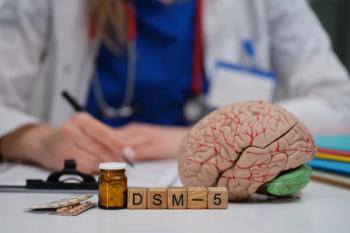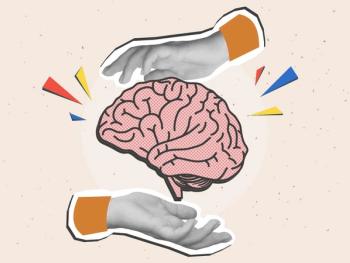
- Psychiatric Times Vol 28 No 8
- Volume 28
- Issue 8
Psychotherapy Research
For prescribing psychiatrists who want to offer treatment alternatives to patients who prefer to avoid medication, the evidence is clear that psychotherapy is an effective choice. Even in cases in which medication is accepted, the evidence suggests that psychotherapy may significantly improve patient outcomes.
A couple of days after I agreed to write this article, I picked up a copy of The New York Times and was greeted with a front page story, “
The evidence for psychotherapy
First, the empirical evidence for the efficacy of psychotherapy for a wide range of mental health problems is extremely strong. Meta-analyses of the effectiveness of psychotherapy over the past few decades have generally found effect sizes of approximately .80, classified as “strong.”2,3 The Center for Evidence-Based Medicine at the University of Toronto provides comparisons of mental health interventions for a wide range of diagnostic categories, and their data also show that the efficacy of psychotherapeutic interventions is high.4
Research that examined the relative effectiveness of psychotherapy versus medication has generally found similar benefits.5 Findings from several studies have shown that even with severe depression, for which SSRIs have their clearest benefit, behavioral activation therapy is comparable in effectiveness in a head-to-head comparison, and as effective as maintenance medication in preventing relapse.6-8
Given that most patients with mental disorders are likely to receive medication, it is valuable to note that adding psychotherapy to the medication treatment regimen can improve patient outcomes. Most of the research in this area has been conducted with depression, and a systematic review by Pampallona and colleagues9 concluded that adding psychotherapy provides significant benefits to patient outcomes.
No differences in effectiveness
If a patient is to be referred for psychotherapy, the first questions are to whom, and for what kind of therapy? Given the principles of evidence-based medicine, it seems most obvious to look to outcome studies of particular types of psychotherapy to particular patient diagnoses. There are many thousands of these studies to choose from. The rather uncomfortable but consistent finding, however, is that the particular type of psychotherapy makes little difference to patient outcome. It likely does not matter if the patient is referred to that rumpled psychoanalytic therapist down the street or to that bright cognitive-behavioral therapist over at the university. A recent study compared the benefits of 7 major psychotherapies for depression and concluded that none were more or less effective than the others.10
When we compare effect sizes of different psychotherapies on particular patient diagnoses, we find that there are no significant differences among psychotherapy approaches. This applies whether we are looking at different treatments for adults with particular diagnoses, for youths, for couples and families, or for those with alcohol and drug abuse.11-15 While a considerable amount of effort has gone, and continues to go, into investigating what particular therapies work for what particular problems, the research data have compellingly and overwhelmingly demonstrated that this is a fruitless pursuit. “Bluntly put, the existence of specific psychological treatments for specific disorders is a myth.”16(p28) It is very compelling for us to believe that particular treatments will work best for specific diagnoses and patient characteristics. The research, however, does not support this.
What is already known about the effectiveness of psychotherapy?
? Psychotherapy is an effective treatment for many mental disorders, and it is a valuable adjunct treatment for most others. While most research has demonstrated robust benefits for the neuroses-type disorders involving anxiety or depression, recent research has demonstrated significant benefit for patients with psychotic disorders and even to those with some neurological disorders such as Alzheimer disease.
What new information does this article provide?
? This article provides both a strong endorsement of referring patients for psychotherapy and a dilemma. It indicates that the research discriminating between the benefits of different types or schools of psychotherapy is weak. It also indicates that the particular therapist is a potent factor for outcome and that ongoing measurement of therapeutic progress and therapeutic alliance offers substantial benefit. The dilemma is that at this time there is no systematic way to find out which therapists are most effective or to measure progress and alliance.
What are the implications for psychiatric practice?
? The research strongly supports referring patients for psychotherapy. The dilemma of finding effective psychotherapists may be best solved by developing referring relationships with a small number of therapists who report measuring progress and alliance and by obtaining feedback from your patients to verify their effectiveness.
In their meta-analysis, Ahn and Wampold17 examined the effects of removing components of psychotherapeutic treatments and found no evidence that removing or adding a specific ingredient altered outcomes. “Research designs that are able to isolate and establish the relationship between specific ingredients and outcomes should reveal how specific ingredients lead to change… Decades of psychotherapy research have failed to find a scintilla of evidence that any specific ingredi-ent is necessary for therapeutic change.”18(p204) Although we may yet find certain strategies that work best with certain patient symptoms, at this point the research suggests that such differences are minimal.
These conclusions are not, predictably, without their detractors. Schools of psychotherapy can be fiercely tribal in defending the superiority of their approaches. In a recent article, the research data were interpreted as indicating that psychodynamic psychotherapy is as effective as or more effective than other forms of therapy and was met with inevitable critiques from advocates of other approaches.19,20
A greater challenge to the equivalence conclusion comes from studies that have randomly assigned patients with a given diagnosis to receive different forms of psychotherapy. While there are many such studies, and some do find apparent superiority of one treatment over another, how these apparent differences should be interpreted is a source of dispute. As we have found with pharmaceutical companies’ research on their own products, we find that when psychotherapy research is conducted by advocates of an approach, the results tend to favor that approach.
The preferred therapy may be compared with other treatments that are not intended to be therapeutic for the specific disorder or are obviously set up to be inferior (eg, less patient contact time, poorly trained therapists, therapists who do not believe in the “treatment” they are supposed to be delivering).21 When these biases and research design flaws are factored out of the data, any differences between recognized psychotherapies disappear. “A rational weighing of the status of current evidence behooves scientists to take another, more careful look at why ESTs [evidence-supported treatments] have failed to distinguish themselves from other treatments and to use this information in framing a broader approach to psychotherapy research.”11(p301)
Characteristics for good outcomes
The research data that show equal effectiveness of different approaches to treatment are sometimes interpreted as “anything goes in psychotherapy.” In reality, the data provide clear evidence that what goes on in psychotherapy matters very much to the outcome. Treatments that are intended to be therapeutic, that the therapist believes in, and for which there is a compelling rationale work. There are characteristics of psychotherapy that lead to poor or damaging outcomes; others predict good outcomes.
The data indicate that some therapists are consistently better than other therapists, that therapeutic relationship factors account for much of the variability in outcome attributable to psychotherapy, and that a major way that better therapists achieve their better outcomes is through enhancing the therapeutic relationship. “Available evidence documents that the therapist is the most robust predictor of outcome of any factor ever studied.”16(p38)
Wampold22 concluded that the portion of outcomes attributable to differences between therapists is 8% to 9%, far outstripping the amount attributable to an empirically supported treatment (0% to 4%), to the differences between treatments (0% to 1%), or even the therapeutic alliance itself (5%). Consistent with this, patients do not emphasize particular psychotherapies or methods when accounting for their improvement but instead emphasize the relationship with their therapists.23
Each psychotherapy includes different active ingredients that promote patient improvement. Given the complexity of human beings and their brains, it is foolhardy to suggest that there is only one way to help someone with emotional distress. What we find, however, is that these ingredients do not work very well unless the person delivering them is genuinely caring and empathic, and able to form a solid therapeutic alliance with the patient.
Similar results are found when we examine the effectiveness of antidepressant medication. Patients’ improvement with medication or placebo was found to be more related to the impact of the particular psychiatrist providing the medication (or the placebo) than to the treatment itself. The most effective psychiatrists helped their patients more using placebo than did the less effective psychiatrists who treated their patients with an antidepressant.24 This finding that the person delivering the treatment is a potent factor in outcome mirrors similar recent findings in medicine in general, with teachers in education, and even the accuracy of political experts.25-28
The therapeutic alliance
While the field of psychotherapy absorbs the evidence, which suggests that different approaches are equivalent, the biggest shift in psychotherapy practice in recent years has been toward the systematic measurement of patient progress and therapeutic alliance. A pervasive human foible that physicians and psychotherapists do not escape is the belief that we are all better than average.
Psychotherapists tend to believe that we have good rapport and alliances with our patients and that our effectiveness with our patients is better than that of most other therapists. For the most part, we draw these conclusions without much evidence. It turns out that collecting these data in a consistent way actually is a potent way of increasing therapeutic effectiveness.29
A variety of measures are now in common use that allow psychotherapists to track the patient’s experience with the therapist and the therapy and to monitor the patient’s session-to-session progress.30 While we have known for many years that some therapists are consistently better than others, we have been finding that these tools can be a great equalizer. When patients are not experiencing a good alliance with the therapist, these tools allow the therapist to find out immediately and to take steps to improve it or refer the patient to another therapist.
The American Psychological Association convened a Presidential Task Force on Evidence-Based Practice that endorsed the importance of ongoing tracking. “The application of research evidence to a given patient always involves probabilistic inferences. Therefore, ongoing monitoring of patient progress and adjustment of treatment as needed are essential to [evidence-based practice in psychology] EBPP.”31(p280)
Psychiatrist David Burns,32 who popularized cognitive-behavioral therapy through his best-selling books (eg, Feeling Good), serves as a good example for the transformation that is taking place in psychotherapy. He now advocates a “tools, not schools” approach and has developed his own tools for tracking patient progress and the therapeutic alliance.
Continuing controversy
Almost 30 years ago, the American Psychiatric Association convened a Commission on Psychotherapies to review and integrate the research data that were available at that time.31 More than 20 esteemed researchers produced a consensus report, and many of the issues they highlighted continue to challenge us today.
Controversy still reigns over the question of whether certain types of therapy are more effective than other types for certain kinds of problems. What has also not been adequately studied is what aspects or elements of the complex therapeutic interaction are relatively the most effective… Psychotherapy is a highly complex set of interactions that take place between individuals over an often indeterminate period of time. It is an open-ended, interactive feedback process in contrast to the closed, one-way causation that is typical of most laboratory research. Research has not as yet been able to fully document these complex sets of interactions.
Although there has been a veritable explosion of psychotherapy research over the past few decades, it has not provided the simple answers we were seeking.
Conclusion
For prescribing psychiatrists who want to offer treatment alternatives to patients who prefer to avoid medication, the evidence is clear that psychotherapy is an effective choice. Even in cases in which medication is accepted, the evidence suggests that psychotherapy may significantly improve patient outcomes. Unfortunately, at this point there is little available guidance on which psychotherapy is most effective and which psychotherapists will best serve your patients.
As unscientific as it may seem, in the absence of other information, the best evidence of therapist effectiveness may be the response of patients. If patients report that they really like their therapist and that he or she is definitely helping them, that therapist would likely be a good bet for other patients. Most valuable, however, will be referring to psychotherapists who systematically measure their patients’ progress and how the patients respond to therapy.
While the evidence on the benefits of tracking the alliance and outcome is clear and robust, it is still in its infancy. Therefore, there is still no easy way to find out about therapists who routinely use these types of measures beyond inquiring. It appears to be, however, the most important question to ask.
References:
References
1. Harris G. Talk doesn’t pay, so psychiatry turns instead to drug therapy. New York Times. March 5, 2011:A1.
2. Smith ML, Glass GV. Meta-analysis of psychotherapy outcome studies. Am Psychol. 1977;32:752-760.
3. Wampold BE. Psychotherapy: the humanistic (and effective) treatment. Am Psychol. 2007;62:855-873.
4. Center for Evidence-Based Medicine-Toronto.
5. Hollon SD. The efficacy and effectiveness of psychotherapy relative to medications. Am Psychol. 1996;51:1025-1030.
6. Fournier JC, DeRubeis RJ, Hollon SD, et al. Antidepressant drug effects and depression severity: a patient-level meta-analysis. JAMA. 2010;303:47-53.
7. Dimidjian S, Hollon SD, Dobson KS, et al. Randomized trial of behavioral activation, cognitive therapy, and antidepressant medication in the acute treatment of adults with major depression. J Consult Clin Psychol. 2006;74:658-670.
8. Dobson KS, Hollon SD, Dimidjian S, et al. Randomized trial of behavioral activation, cognitive therapy, and antidepressant medication in the prevention of relapse and recurrence in major depression. J Consult Clin Psychol. 2008;76:468-477.
9. Pampallona S, Bollini P, Tibaldi G, et al. Combined pharmacotherapy and psychological treatment for depression: a systematic review. Arch Gen Psychiatry. 2004;61:714-719.
10. Cuijpers P, van Straten A, Andersson G, van Oppen P. Psychotherapy for depression in adults: a meta-analysis of comparative outcome studies. J Consult Clin Psychol. 2008;76:909-922.
11. Beutler LE. Making science matter in clinical practice: Redefining psychotherapy. Clin Psychol Sci Prac. 2009;16:301-317.
12. Wampold BE. The research evidence for common factors models: a historically situated perspective. In: Duncan BL, Miller SD, Wampold BE, Hubble MA, eds. The Heart and Soul of Change. 2nd ed. Washington, DC: American Psychological Association; 2010:49-82.
13. Kelley SD, Bickman L, Norwood E. Evidence-based treatments and common factors in youth psychotherapy. In: Duncan BL, Miller SD, Wampold BE, Hubble MA, eds. The Heart and Soul of Change. 2nd ed. Washington, DC: American Psychological Association; 2010:325-356.
14. Sparks JA, Duncan BL. Common factors in couple and family therapy: must all have prizes? In: Duncan BL, Miller SD, Wampold BE, Hubble MA, eds. The Heart and Soul of Change. 2nd ed. Washington, DC: American Psychological Association; 2010:357-392.
15. Mee-Lee D, McLellan T, Miller SD. What works in substance abuse and dependence treatment. In: Duncan BL, Miller SD, Wampold BE, Hubble MA, eds. The Heart and Soul of Change. 2nd ed. Washington, DC: American Psychological Association; 2010:393-417.
16. Hubble MA, Duncan BL, Miller SD, Wampold BE. Introduction. In: Duncan BL, Miller SD, Wampold BE, Hubble MA, eds. The Heart and Soul of Change. 2nd ed. Washington, DC: American Psychological Association; 2010:23-46.
17. Ahn H, Wampold BE. A meta-analysis of component studies: where is the evidence for the specificity of psychotherapy? J Counsel Psychol. 2001;48:251-257.
18. Wampold BE. The Great Psychotherapy Debate: Models, Methods, and Findings. Mahwah, NJ: Lawrence Erlbaum Associates, Inc; 2001.
19. Shedler J. The efficacy of psychodynamic psychotherapy. Am Psychol. 2010;65:98-109.
20. Anestis MD, Anestis, JC, Lilienfeld SO. When it comes to evaluating psychodynamic psychotherapy, the devil is in the details. Am Psychol. 2011;66:149-151.
21. Anderson T, Lunnen KM, Ogles BM. Putting models and techniques in context. In: Duncan BL, Miller SD, Wampold BE, Hubble MA, eds. The Heart and Soul of Change. 2nd ed. Washington, DC: American Psychological Association; 2010:143-166.
22. Wampold BE. The psychotherapist. In: Norcross JC, Beutler LE, Levant RF, eds. Evidence-Based Practices in Mental Health: Debate and Dialogue on the Fundamental Questions. Washington, DC: American Psychological Association; 2005:200-207.
23. Norcross JC. The therapeutic relationship. In: Duncan BL, Miller SD, Wampold BE, Hubble MA, eds. The Heart and Soul of Change. 2nd ed. Washington, DC: American Psychological Association; 2010:113-142.
24. McKay KM, Imel ZE, Wampold BE. Psychiatrist effects in the psychopharmacological treatment of depression. J Affect Disord. 2006;92:287-290.
25. Leonhardt D. Making Health Care Better. New York Times. November 3, 2009.
26. Hojat M, Louis DZ, Markham FW, et al. Physicians’ empathy and clinical outcomes for diabetic patients. Acad Med. 2011;86:359-364.
27. Ripley A. What Makes a Great Teacher? The Atlantic. January/February 2010.
28. Tetlock PE. Expert Political Judgment: How Good Is It? How Can We Know? Princeton, NJ: Princeton University Press; 2005.
29. Lambert MJ. Yes, it is time for clinicians to routinely monitor treatment outcome. In: Duncan BL, Miller SD, Wampold BE, Hubble MA, eds. The Heart and Soul of Change. 2nd ed. Washington, DC: American Psychological Association; 2010:239-266.
30. Outcome and Alliance Scales-Heart & Soul of Change Project.
31. APA Presidential Task Force on Evidence-Based Practice. Evidence-based practice in psychology. Am Psychol. 2006;61:271-285.
32. Burns DD. Feeling Good Web Site. http://www.feelinggood.com. Accessed June 23, 2011.
Articles in this issue
over 14 years ago
Psychiatric Issues in Hoardingover 14 years ago
Of Two Mindsover 14 years ago
From Cinderella to Straw Man?over 14 years ago
How Psychotherapy Changes the Brainover 14 years ago
Becoming a Mensch: Timeless Talmudic Ethics for Everyoneover 14 years ago
The Internover 14 years ago
Problems of Overdiagnosis and Overprescribing in ADHDover 14 years ago
"Morality” Professor Responsible for Research Misconduct Resignsover 14 years ago
Blood Tests for Diagnosis of Schizophrenia and Depression?Newsletter
Receive trusted psychiatric news, expert analysis, and clinical insights — subscribe today to support your practice and your patients.







